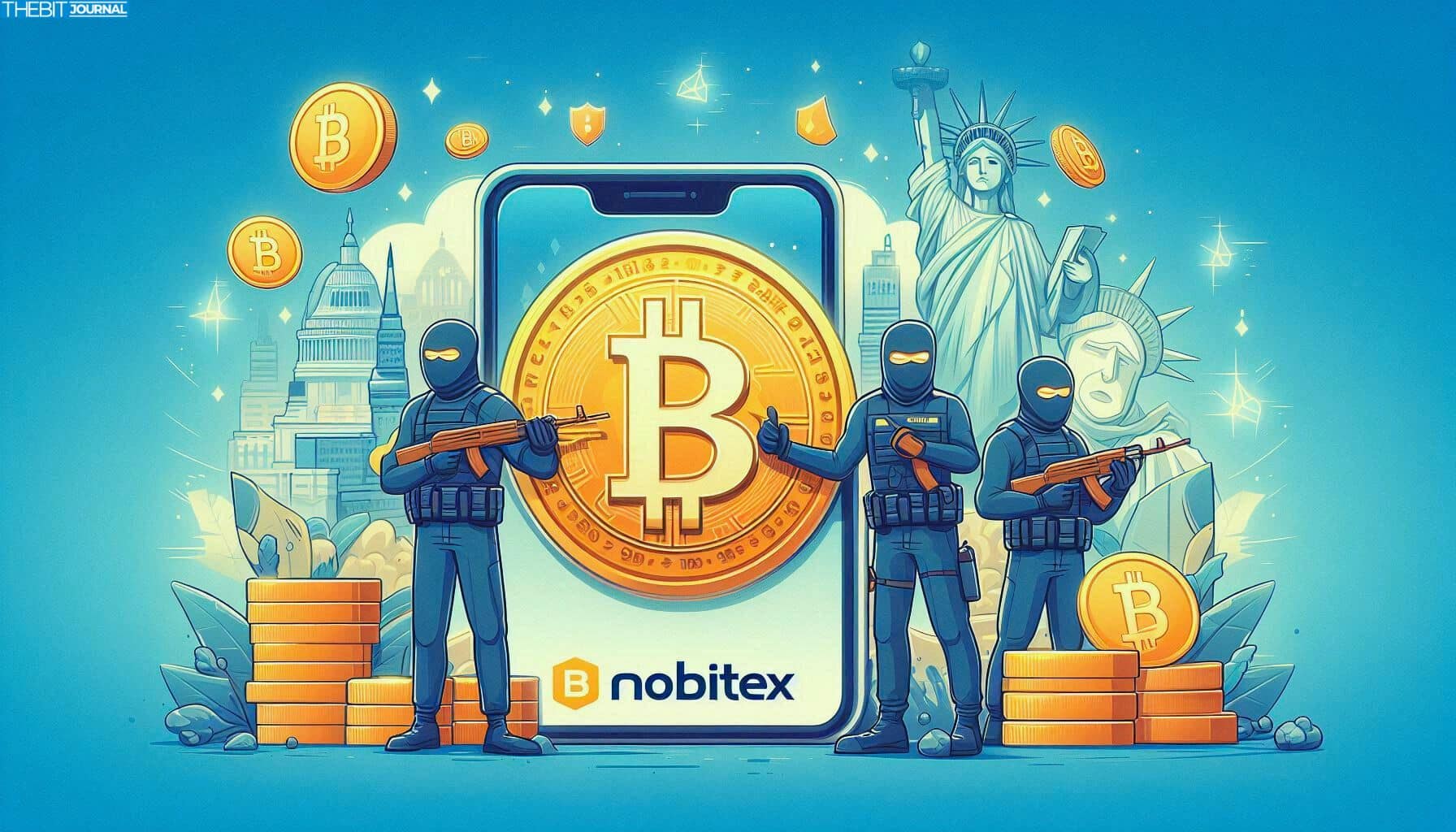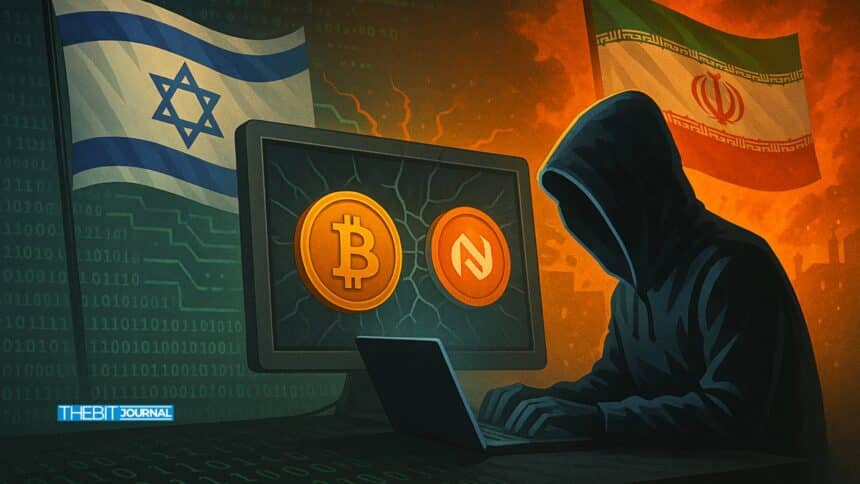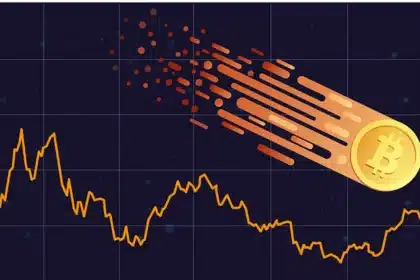Iran’s largest cryptocurrency exchange, Nobitex, has fallen victim to a cyberattack, resulting in a loss of approximately $82 million. The attack has reportedly been claimed by Gonjeshke Darande, an Israeli-linked hacktivist group believed to have ties to Israeli intelligence. The Nobitex hack has raised alarms over the security of crypto exchanges, particularly those operating in politically sensitive regions.
Gonjeshke Darande’s latest Nobitex hack comes amid escalating geopolitical tensions between Israel and Iran. The hacking group, which has previously targeted Iranian infrastructure, issued a chilling warning that Nobitex’s internal data and source code would be released within 24 hours. They also emphasized that any remaining assets on the exchange would be at risk, pushing users into a state of panic and confusion.
In a statement posted on X, the hacker group referenced their earlier attack on Bank Sepah, a state-owned Iranian bank, before claiming responsibility for the Nobitex hack. The group’s actions are not just about financial theft but also part of a larger political strategy to disrupt Iran’s use of cryptocurrency as a means of bypassing international sanctions.
The Nobitex Hack and the Stolen Funds
According to on-chain sleuth ZachXBT, approximately $81.7 million in various cryptocurrencies, including Bitcoin, Dogecoin, and Tron, was siphoned from Nobitex during the Nobitex hack.
The funds were moved to wallets with provocative names, including “TKFuckiRGCTerroristsNoBiTEXy2r7mNX,” a clear message aimed at the platform for its role in supporting Iran’s sanctioned activities. The stolen assets were distributed across different blockchains, making it difficult to track the funds’ movement.

The hacker group has vowed to release Nobitex’s source code, which could lead to further vulnerabilities for the exchange. A leak of this magnitude could seriously undermine the platform’s credibility and security, making it even more difficult for the exchange to recover from the Nobitex hack. As of now, Nobitex has not confirmed the full extent of the stolen funds, though it acknowledged the Nobitex hack in a brief post.
The Geopolitical Implications of the Nobitex Hack
The timing of this attack is significant, as it coincides with rising tensions between Israel and Iran. For years, Iran has allegedly used cryptocurrencies to bypass economic sanctions imposed by the international community. In this context, platforms like Nobitex have become crucial for facilitating crypto-based payments, which in turn support Iran’s efforts to mitigate the impact of sanctions.
Gonjeshke Darande’s claim that the Nobitex hack is “core” to Iran’s alleged terror-financing network highlights the political motives behind this attack. By targeting a platform central to Iran’s crypto operations, the hacker group is attempting to undermine the regime’s ability to use digital assets as an alternative to traditional financial systems.
The attack is not just about financial gain but also about political resistance, further intensifying the digital conflict between Israel and Iran.
Nobitex’s Response and the Fallout
In the wake of the Nobitex hack, Nobitex has faced mounting pressure to secure its platform and recover lost assets. While the exchange has acknowledged the breach, it has not yet provided detailed information regarding the stolen funds or the attack’s technical aspects. This lack of transparency has raised concerns among users, many of whom are unsure whether their funds are safe on the platform.
The breach has also created a credibility crisis for Nobitex, as the platform was already facing challenges before the Nobitex hack. In July 2024, Nobitex was the victim of a hack that left over 4.4 million users locked out of their funds.
Since then, the platform has faced numerous delays, vague updates, and shifting plans, which have eroded user trust. Now, with the source code set to be released by the hackers, Nobitex faces a renewed crisis of confidence.

Conclusion: Crypto Security in a Volatile World
The Nobitex hack is a stark reminder of the risks associated with operating a cryptocurrency exchange in today’s volatile geopolitical landscape. With tensions between Israel and Iran continuing to rise, digital platforms like Nobitex are likely to remain key targets for state-sponsored hacking groups.
The attack underscores the need for enhanced security measures within the crypto industry, particularly for exchanges dealing with high-risk assets or operating in politically unstable regions.
FAQs
Who is responsible for the Nobitex hack?
The hack was reportedly carried out by the Israeli-linked group Gonjeshke Darande, believed to have ties to Israeli intelligence.
How much was stolen from Nobitex?
Approximately $82 million in digital assets were stolen during the attack, including Bitcoin, Dogecoin, and Tron.
What is the impact of releasing Nobitex’s source code?
If the hackers release the source code, it could expose vulnerabilities in the platform and compromise the security of user funds.
How will the Nobitex hack affect the crypto industry?
The hack highlights the vulnerabilities faced by crypto exchanges in politically unstable regions and could prompt increased security measures across the industry.
Glossary
Gonjeshke Darande: A hacktivist group with suspected ties to Israeli intelligence, known for conducting politically motivated cyberattacks.
On-Chain Data: Data related to transactions on a blockchain, used for tracking and analyzing movements of digital assets.
Vanity Address: A personalized cryptocurrency wallet address, often created for specific purposes such as sending a political message.
Sanctions Evasion: The act of bypassing international financial sanctions through the use of alternative financial systems, such as cryptocurrency.
Hacktivism: The use of hacking to promote political or social agendas, often targeting governments or organizations.





























